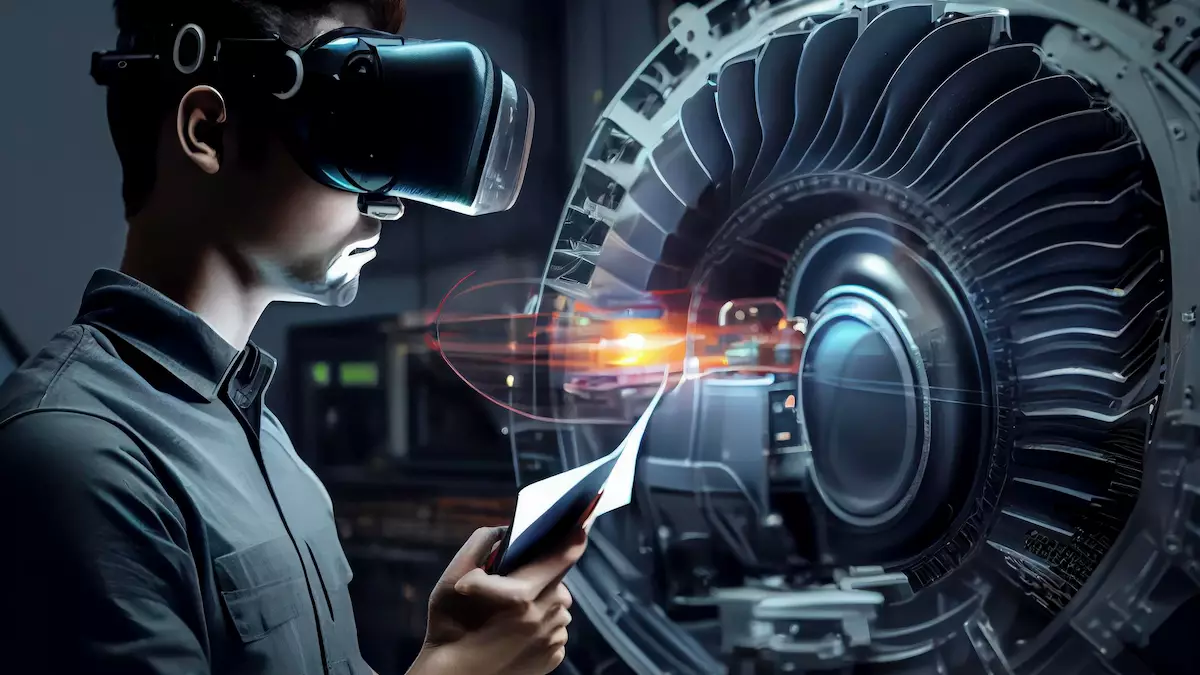The industrial metaverse is a rapidly growing technology that is set to revolutionize industries across the globe. With a projected sales growth of US$ 61.8 billion in 2022 and a compound annual growth rate (CAGR) of 25.3% from 2023 to 2033, this innovative technology is reshaping the way businesses design, simulate, and test products. The integration of the industrial metaverse into sectors such as car manufacturing is driving a wave of innovation, with analysts predicting an astonishing market expansion from US$ 80.1 billion in 2023 to a staggering US$ 765.8 billion by 2033.
One of the key advantages of the industrial metaverse is its ability to accelerate product development cycles in industries like automotive manufacturing. By utilizing virtual prototyping, car manufacturers can iterate designs rapidly, leading to faster product development cycles and greater efficiency. This technology significantly reduces the need for physical prototypes, making processes more efficient and ultimately cutting costs. The integration of advanced digital platforms featuring virtual reality (VR), augmented reality (AR), and mixed reality (MR) further propels the adoption of the industrial metaverse, offering a more sustainable mode of operation by transferring activities traditionally done in the physical realm into entirely virtual environments.
The surge in digital twin technology, coupled with the integration of VR, AR, and MR, is transforming industrial processes and driving organizations towards more innovative and sustainable practices. The industrial metaverse acts as a catalyst for change, enabling collaboration between stakeholders worldwide without any geographic constraints. Through real-time interaction and virtual communication, teams can create, test, and improve product designs without the need for physical meetings. This streamlined workflow leads to improved efficiency and productivity.
The transformative power of the industrial metaverse extends beyond technological advancements. It is reshaping the future of work and redefining how organizations operate. As the global market increasingly accepts the industrial metaverse, its integration has become essential for organizations to remain competitive in an evolving work landscape. By utilizing this technology, businesses can adapt to changing market dynamics, keep up with emerging trends, and enhance their overall operational efficiency.
In the automotive industry, the industrial metaverse is revolutionizing the way vehicles are designed and tested. This digital tool allows manufacturers to build and adjust virtual models of cars before they hit the production line. By utilizing the metaverse, car manufacturers can speed up the design process, reduce the need for constructing multiple physical car models, and make the entire car design cycle more efficient. Furthermore, engineers can run simulations on various car parts, including engines and frameworks, in a digital space. This method saves time and money, promising better quality and more reliable vehicle parts.
The impact of the industrial metaverse extends to the very heart of car manufacturing – the assembly line. Manufacturers are utilizing the metaverse to fine-tune operations, making the building of cars smoother and more efficient. By leveraging virtual reality and simulation technologies, organizations can optimize the assembly process, resulting in improved productivity, reduced errors, and cost savings.
The industrial metaverse market is poised to revolutionize industries, thanks to its rapid growth and transformative potential. Its integration into sectors like car manufacturing is ushering in a new era of innovation and efficiency. As this technology reshapes industrial processes, redefines the future of work, and streamlines car design and testing, it is becoming an essential tool for organizations seeking to stay competitive in a changing landscape. The industrial metaverse presents endless possibilities for businesses to enhance their operations, achieve sustainability goals, and drive innovation in the rapidly evolving digital age.

